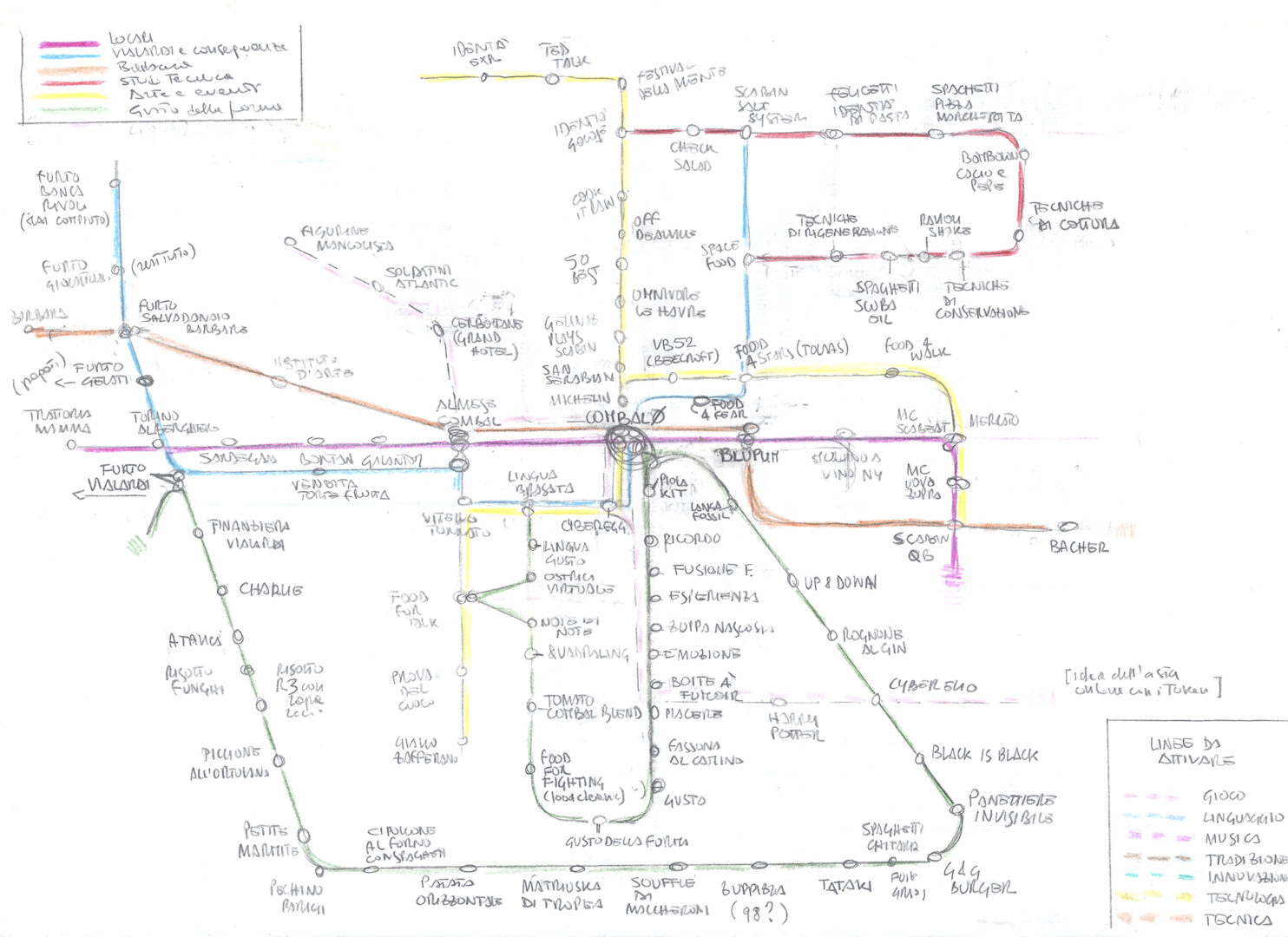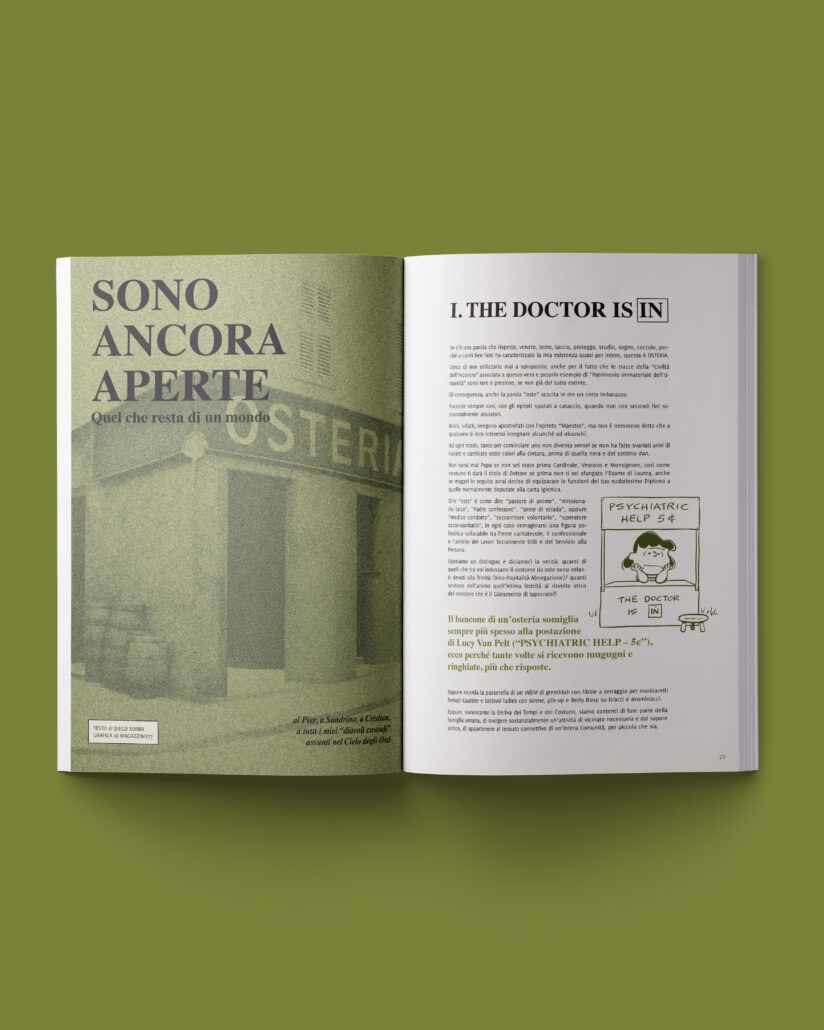The 250/100 historical menu by Davide Scabin, currently featured at Carignano in Turin, has set in motion a long-contemplated project: the complete mapping of the chef’s work. The following text traces its genesis and outlines the conceptual foundations of this initiative, which aims to capture – in a timeless, non-biographical form – the defining traits of his cuisine that have marked turning points in contemporary gastronomic thought.
Prologue
“What have you been doing all these years, Noodles?”
“I went to bed early.”
In one of the most iconic sequences in the history of cinema, De Niro opens Once Upon a Time in America with this cryptic exchange.
The reference to the much-quoted yet seldom-read opening of Proust’s In Search of Lost Time is inevitable:
Longtemps, je me suis couché de bonne heure. In both cases, interpretations abound, and no single reading prevails over the others when it comes to the meaning behind the two protagonists’ “going to bed early.”
A reflection on the past?
An awareness of a time that will never return?
An admission of a time that could have been, but never was?
Or, conversely, the serene anticipation of a time still waiting to unfold?
Why not instead a sense of inner peace for a time that has already expressed itself to the fullest – so that one turns in early to luxuriate in that liminal space between wakefulness and sleep, where the recognition of the entire universe resides?
The brilliance of this expression lies precisely in its refusal to be definitive: it is essential to the work it introduces, yet it does not dictate how the viewer must experience it.
It conveys, without embellishment, the protagonist’s position, but leaves the listener free to draw their own conclusion according to their own state of mind –according to what they are seeking.
Its strength resides in the shifting nature of the audience: each time we rewatch Once Upon a Time in America, Noodles will always give the same answer; each time we reread In Search of Lost Time, the novel will always open with the same line.
But in watching again, in reading again, we will not be the same – and the taste of that phrase will plunge us into our own personal gaze upon the past, and into whatever meaning retrospection holds at that precise moment in our lives.
Log in or subscribe.





